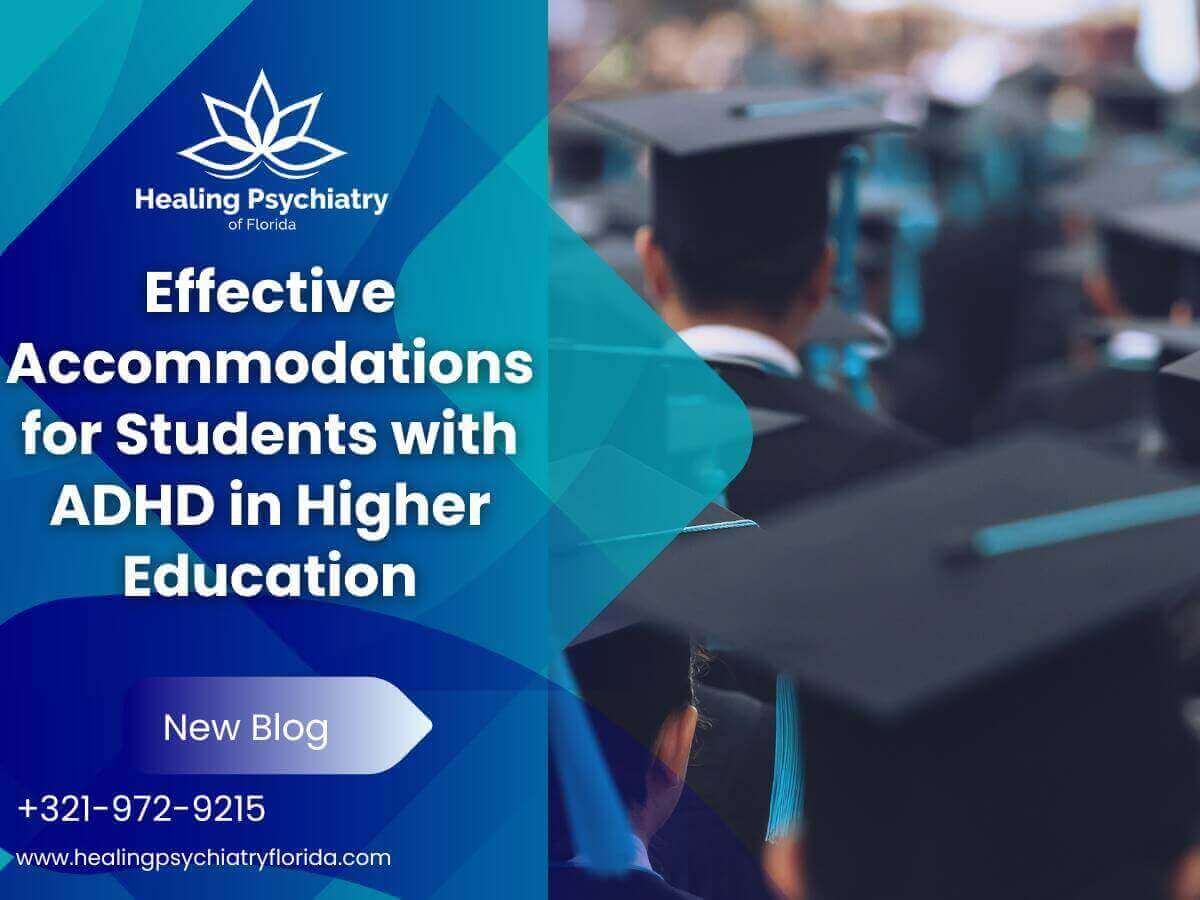Higher education is already full of challenges for students. If you have Attention Deficit Hyperactivity Disorder (ADHD), you may find the path even harder. ADHD includes symptoms like inattention, hyperactivity, and impulsivity. Studies show that students with ADHD finish college at lower rates than their peers. This highlights the need for better support and accommodations.
Students with ADHD struggle with time management, organization, and sustained attention. These skills are key to academic success.
It’s encouraging to see that universities and colleges see the need for personalized support. They also see the need for accommodations. They’re realizing it’s not just about following the law; it’s about creating an inclusive atmosphere for all students, including you. This article explores how accommodations help students with ADHD. It emphasizes the need for a kind and individualized teaching approach.
Understanding ADHD in Higher Education
ADHD, or Attention Deficit Hyperactivity Disorder, is a neurodevelopmental disorder marked by inattention, hyperactivity, and impulsivity. These symptoms can significantly impact your academic performance and involvement in university activities. Studies show that students with ADHD complete college at lower rates than their peers, underscoring the need for better support and accommodations.
The Need for ADHD Accommodations
Accommodations are tailored changes or supports to help you thrive academically. They level the playing field by addressing your specific challenges with attention, organization, and time management. With the right tools, you can showcase your true potential.
Key Accommodations for Students with ADHD
- Extended Time on Exams and Assignments Many students with ADHD benefit from extra time on exams and assignments, one of the most common accommodations. It helps you manage time perception and reduce anxiety, ensuring a fair evaluation of your abilities. For example, a psychology major found that extra time allowed her to read and organize without feeling rushed.
- Note-Taking AssistanceIf you struggle with taking detailed notes during lectures due to difficulties staying focused, universities can provide peer note-takers or access to recorded lectures. An engineering student shared that reviewing lectures at his own pace helped him understand and remember better.
- Use of Technology Assistive software, like speech-to-text programs and organizational apps, can be invaluable. A business administration student uses digital planners and task apps to track assignments and deadlines, helping her stay organized and avoid missing deadlines.
- Flexible Deadlines Professors who understand the challenges you face may offer flexible deadlines, allowing you to manage your work more efficiently. A literature student found that flexible deadlines helped him balance his coursework and manage his attention span.
- The Pomodoro Method The Pomodoro Technique, which involves short study sessions followed by breaks, is highly effective. Adjusting the intervals to 15 minutes of work and a 3-minute break may work better for you. A computer science student mentioned that this technique made her study sessions more productive and less stressful.
Creating an ADHD-Friendly Learning Environment
- Supportive and Understanding Faculty Having a supportive faculty can make a big difference. When professors understand ADHD and its effects, they create a more accommodating environment. For example, a sociology professor ensures his students feel at ease by discussing accommodations privately.
- Structured and Predictable Schedules Consistent class timings, assignment deadlines, and exam dates reduce anxiety and improve time management. Universities can help by providing clear syllabi that outline important dates and expectations.
- Small Group DiscussionsSmall group discussions are more engaging and less overwhelming than large lectures. A history major found that these discussions helped him stay engaged and better understand the material.
Transitioning to College with ADHD
- Orientation Programs Transitioning from high school to college is a big change, especially if you have ADHD. Special orientation programs can provide valuable resources and information, making the transition smoother. A freshman found her university’s program boosted her confidence and eased her transition.
- Academic Advising Advisors provide continuous support, helping you select the right courses, manage your workload, and offer study advice. A sophomore biology student found his advisor’s guidance invaluable in managing his ADHD symptoms and academic responsibilities.
The Importance of Self-Advocacy
Learning to advocate for yourself is crucial. By understanding your needs and asking for accommodations, you can enhance your educational experience. Universities support self-advocacy by offering training sessions. For example, a senior in education gained confidence through a workshop on self-advocacy, helping her communicate her needs to professors.
Real-World Impacts of ADHD Accommodations
- Improved Academic Performance Accommodations can lead to better grades and reduced stress. For example, a law student found that extra time on exams and access to lecture notes significantly boosted his grades.
- Enhanced Well-Being and Mental Health Accommodations improve academic success and well-being. A nursing student discovered that her university’s support helped her balance her studies and personal life.
- Increased Enrollment and Graduation Rates Universities that support students with ADHD tend to have higher retention and graduation rates. A psychology graduate credited his university’s disability services for helping him complete his degree.
Final Thoughts
Creating a level playing field for students with ADHD is essential. Universities that recognize your unique challenges and provide specific support help you thrive academically and personally. Emphasizing a kind and individualized approach to education ensures all students have equal opportunities to succeed.
Remember, ADHD accommodations are about valuing neurodiversity. As education evolves, continuous support for students like you is crucial. Together, we can create an inclusive and supportive environment for everyone.
If you or a loved one is struggling with ADHD, Healing Psychiatry of Florida is here to help. Our compassionate team offers personalized support and effective strategies to help you thrive academically and personally. Don’t wait—contact us today to start your journey towards better mental health and a brighter future. Visit our website or call us at 321-972-9215 to schedule an appointment. Your path to success starts here.

